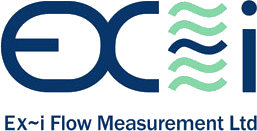After a torrid 2014, the UK’s North Sea oil industry is determined to ensure that it remains a viable, global player in the years ahead.
Positive signs
Last month, Scottish oil and gas companies returned from the Offshore Technology Conference in Houston, Texas wielding signed contracts and requests for tenders from across the globe, an outcome described by Lena Wilson, Chief Executive of Scottish Enterprise, as ‘extremely encouraging’.
The USA is the largest overseas market for products and services from Scotland’s oil and gas industry. Scottish companies at the OTC had showcased some of the innovations and technologies already serving overseas oil sector clients.
Back in the UK, this month saw the second Oil & Gas UK Conference in Aberdeen. The theme this year was ‘Maximising Economic Recovery from the UK Continental Shelf’. Commenting ahead of the event, Scotland’s First Minister Nicola Sturgeon – a keynote speaker – described the conference as ‘the perfect forum for us to work together, build on the success the industry has demonstrated and map out the brightest possible future for it’.
A beleaguered industry
In 2014 the North Sea oil sector as a whole lost £5.3 billion – its worst year since the 1970s. While output of both natural gas and oil remained strong, exploration was pared back as oil prices tumbled and revenues fell. BP and Royal Dutch Shell were among companies which slashed investment and cut back on jobs.
The sector’s challenges led the former Coalition Government, in its last Budget before the general election, to announce a range of tax cuts which could reduce the amount the industry will pay over the next five years by £1.3 billion. Plans were also unveiled for government funding for seismic surveying of the seabed.
A new regulator for the North Sea
The Oil and Gas Authority (OGA), an executive government agency, has also been established with the aim of ensuring the industry uses infrastructure more efficiently and promoting good commercial practice.
The OGA will place special emphasis on collaborative working to mitigate the harmful ‘domino effect’ to which the North Sea industry is prone. Historically, the loss of one company’s assets hit those of another operator. With fewer platforms to support shared infrastructure, unit operating costs increase for all.
The OGA will have the power to revoke the licences of companies that fail to extract enough oil or gas. It will also be able to examine operators’ decommissioning plans to check that they are cost effective and that key assets are not prematurely shut down.
In addition, the Authority will assist with longer-term plans for gas storage and carbon capture technologies. On the employment and skills front, it will encourage companies to retain apprenticeship schemes and look at ways of avoiding redundancies, which have a detrimental effect on future capability during downturns.
North Sea operators continue to benefit from gas flow measurement and engineering solutions provided by Ex~i Flow. To find out more about our services call us on 01243 554920.
